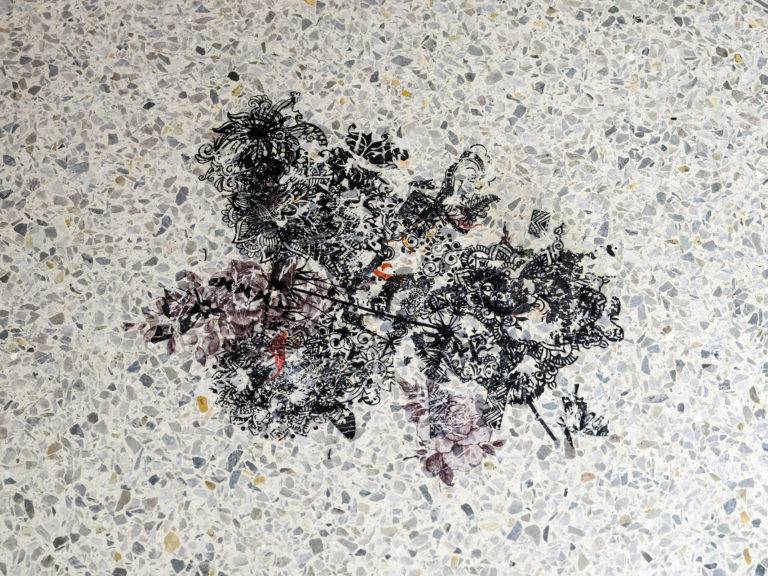Marxism in Culture: On the Aesthetics of a Fractured Vitalism
07 June 2019, 5:30 pm–7:30 pm

The IAS is delighted to host this Marxism in Culture seminar where Jenny Nachtigall (Städelschule, Frankfurt) will present her work 'On the Aesthetics of a Fractured Vitalism: Digital Ecologies and the Limits of Relationality'.
This event is free.
Event Information
Open to
- All
Cost
- Free
Organiser
-
Andrew Murray
Location
-
seminar room 3 & 4UCL History of Art Department20 Gordon SquareLondonWC1E 6BTUnited Kingdom
Ever since capitalist modernity scientific and philosophical attempts at defining the liveliness of life have drawn on an aesthetic vocabulary and images of productivity. More specifically, art and the figure of the artist have continuously served as the primary emblems of vitality. From philosopher Henri Bergson’s approximation of life to a creation made by “an artist of genius” (1907) to biologist Lynn Margulis’s/Dorion Sagan’s (1997) take on ecological catastrophes as a motor of innovation in the manner of “an artist whose misery catalyzes beautiful works of art”: Scientific approximations to “life” tend to rely on models of productivity, creativity, contingency, and complexity. If within the horizon of industrial capitalization life was conceived as perpetual self-generating movement, in the digital era of financialisation this dynamism expanded towards a continuous transgression of boundaries.
This paper aims to re-focus the relation between aesthetic and/as social vitality, by taking into account the fraught relation between an aesthetically coded vitality of life and the fetishistic vitality of capital as self-generating value. Drawing on recent artistic and aesthetic productions in writing, video and installation as well as on different theories of (digital) ecology, and social death, the paper focuses on the present manifestations of a social, collective and thus by necessity fractured vitality that precedes and traverses the field of art. How do aesthetic modes of interruption, separation, or agitation give form and space to a notion of vitality beyond flow? How do they allow for conceiving a vitalism that does not actualize itself in a movement to exceed the abstractions of capitalized life, but materializes in spite of it?
Bio
Jenny Nachtigall is an art historian and writer based in Berlin. Since April 2019 she is a guest professor for art history and theory at the Städelschule in Frankfurt. Previously she was a lecturer in aesthetic theory at the Academy of Fine Arts in Munich (2014-19). She completed a PhD on the subject of “Form as Contradiction. Berlin Dada’s Impossible Formalisms“ (publication in preparation) at the History of Art Department of UCL in 2016. Currently she is working on the after-lives of vitalism in modern and contemporary art and theory. Recent publications include a.o. "Vitalism/ ‚Living Form’’” (2018, in Neolithic Childhood. Art in a False Present, c. 1930, ed. Anselm Franke, Tom Holert), “The Modern Subject, a Dead Form Living. On the Aesthetics of (a Fractured) Vitalism“ (2019, in Post-Apocalyptic Self-Reflection, ed. Tanja Widmann, Laura Preston), Hybrid Ecologies (forthcoming, ed. with Maria Muhle, Marietta Kesting, Susanne Witzgall) and Klassensprachen – Written Praxis, (2017, ed. with Manuela Ammer, Eva Birkenstock, Kerstin Stakemeier, Stephanie Weber). She is a member of the advisory board of Texte zur Kunst and writes a.o. for art-agenda and Artforum.
All welcome!
Convenors: Matthew Beaumont, Dave Beech, Alan Bradshaw, Warren Carter, Gail Day, Steve Edwards, Larne Abse Gogarty, Esther Leslie, Luisa Lorenza Corna, David Mabb, Antigoni Memou, Andy Murray, Nina Power, Dominic Rahtz, Pete Smith, Peter Thomas, Alberto Toscano, Marina Vishmidt.
 Close
Close

